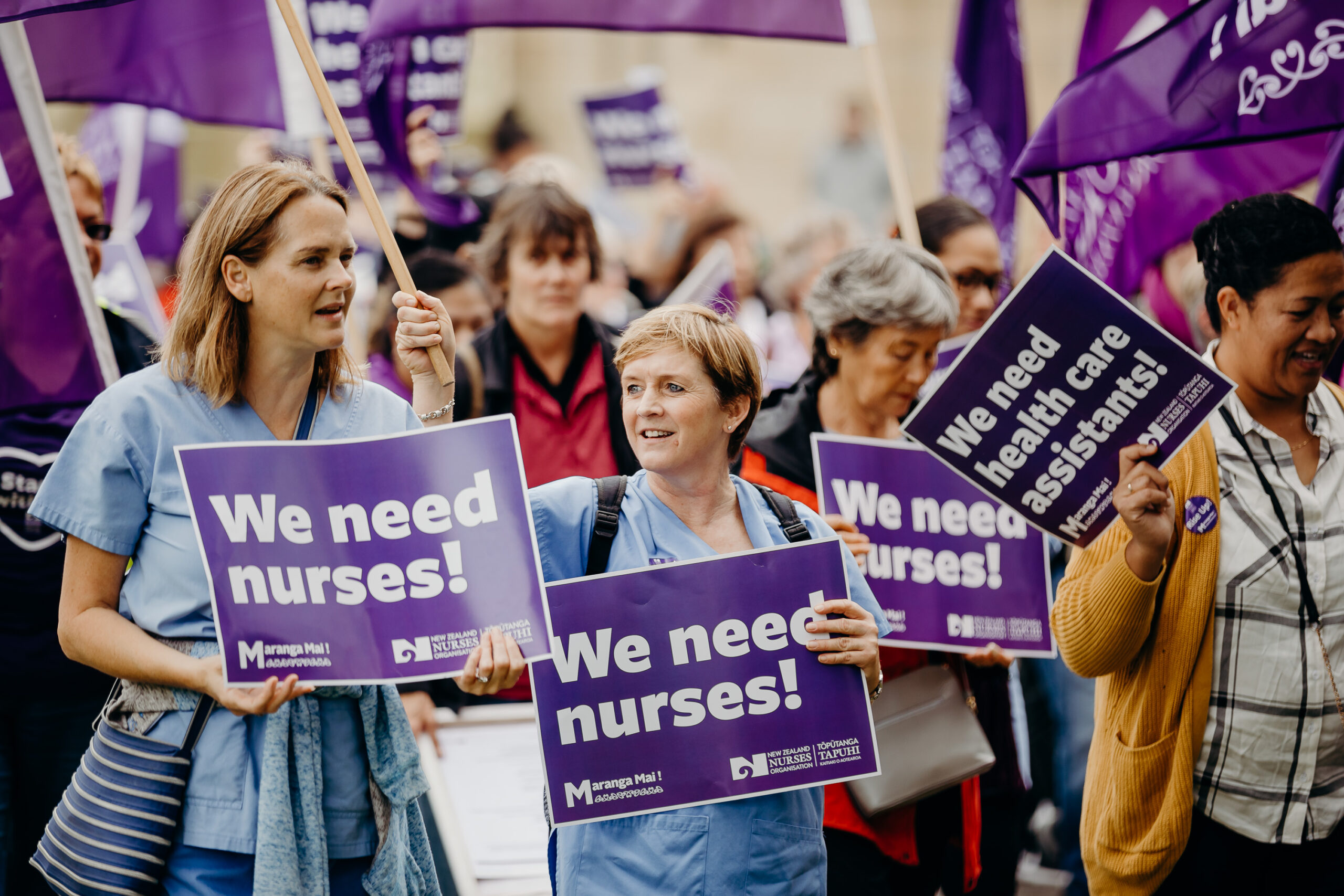Teacher and ISO member Romany Tasker-Poland, on learning from the teachers’ strikes.
The teachers, primary and secondary, have had a victory (if a partial one). It has been a long fight. The first teachers’ strike was by NZEI primary teachers in August 2018. Primary teachers struck again in November in the form of rolling regional action. The last action was the historic NZEI and PPTA joint “mega-strike” on 29 May.
The public have been with us every step of the way. The massive turn-outs for the marches have been one indicator of that, as has the support flowing in through social media and the positive interviews in the mainstream media. And why would the public not support us? When we talk about the “the public”, who are we actually talking about? When we marched on Parliament these were the people marching with us: our students and their whānau, who see the work we do each day; our own children, families and whānau, who we are trying to support; our friends and co-workers; and workers from other industries demonstrating the principle of solidarity: your struggle is our struggle.
Throughout this struggle we have been threatened with public opprobrium. By the Ministry, the media, and union higher-ups. The Ministry has obvious reasons for trying to discourage us. Many mainstream media outlets are well-known for having a right-wing, anti-union slant; and aside from this, drama and conflict generate more interest and more revenue. If anything, the media coverage has been surprisingly positive overall. As for union officials, it is their job to mediate between workers and the Ministry. Negotiation is their bread and butter; striking deals is their modus operandi. That is why they are so often more conservative than the rank and file members, more apt to try to moderate expectations, and more apt to wring their hands about public opinion. For workers, it is hard to maintain self-confidence when you are hearing repeated threats that the tide of public opinion will inevitably turn against you. And it becomes a self-fulfilling prophecy. When “public opinion” and “burden on parents” are the talking points being repeated, it becomes common sense that “the public” ought to feel aggrieved, or at least anxious about industrial action.
Stirring up anxiety about public support has involved a lot of people speaking on behalf of others. The antidote to this is for us to speak up for ourselves. If you are a supporter, this means being loud and public in your support, knowing that the media will seize on negative voices to amplify. If you are a worker in an industrial dispute, this means speaking up for yourself and talking to your co-workers. This is what made the teachers’ strikes and the union meetings so powerful and so useful: they were a chance for us to hear from each other directly, not through a mediator. The strikes were also a chance for us to speak directly to the public. Public support is not a finite resource, and the tide of public opinion isn’t a forgone conclusion. Whether or not people support us in large part depends on what we do and how well we argue our points.
There is another important, but difficult, lesson here: we don’t have to please everyone. There are a lot of parallels between the teachers and the nurses. Teachers, like nurses, are told that we are here because we care. We do care, and this is weaponised against us. We are told that we should feel guilty for demanding more. This harping on about public support is another way of saying “you are here to serve people, you are here to put others before yourself.” It is gendered: that is, it is no coincidence that it is mainly workers in female-dominated industries who hear these arguments. We can resist this guilt-tripping because we know what we are fighting for. Firstly, we are fighting for wages. In New Zealand, low wages have been normalised to the point where we are made to feel ashamed for asking for more. This is what we are pushing back against, not just for ourselves but for all workers who are undervalued. We have also made it clear that we are fighting for the future of the teaching profession. If we don’t reverse the downward trend in wages and conditions soon then we will soon be faced with a greater crisis as older teachers retire and new ones burn out. And we are fighting for education, just as the nurses are fighting for healthcare: we can see what the repercussions will be if public services continue to be underfunded.
Not everyone is going to be on our side. Some people are opposed to these aim: we don’t need to worry ourselves about what those people will say about us. Even those who stand to benefit in the long run may not see this at the time. If we are ever going to win these people around, first we need to back ourselves. This is one of the main lessons of the teachers’ struggle: kia kaha. Or in other words: stand up, fight back!









